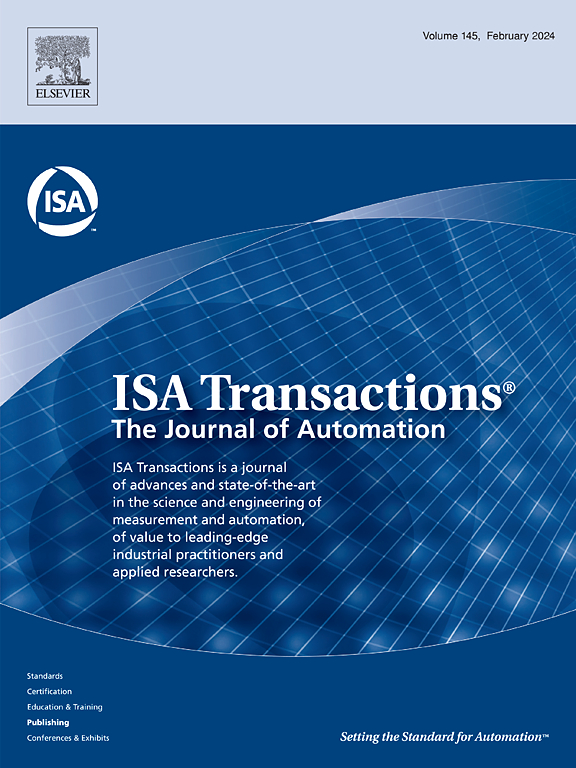小延迟批处理的迭代学习鲁棒安全预测跟踪控制:不可靠网络通道上的欺骗攻击
IF 6.5
2区 计算机科学
Q1 AUTOMATION & CONTROL SYSTEMS
引用次数: 0
摘要
在批处理过程中,随着网络控制技术的逐步渗透,对安全控制的需求日益迫切。针对受到欺骗攻击的小时延批处理过程,开发了一种迭代学习稳健安全预测跟踪控制方法。回顾以往关于迭代学习控制的研究,批处理过程的重复性会掩盖欺骗攻击的特点这一问题没有被考虑在内。此外,迭代学习控制法的增益是离线利用的,随着运行时间的增加,系统状态会出现较大偏差。这将导致控制输入的 "过量输入 "条件,意味着更多的能源和生产资源消耗。为应对这些挑战,我们引入了鲁棒安全不变集,通过约束系统状态在安全范围内来提高系统的鲁棒性。同时,迭代学习控制器的设计结合了历史批次的欺骗攻击数据,并不断改进和优化,以抵御欺骗攻击。同时,通过在线计算稳定性条件,获得实时控制律增益,从而可以根据实时系统的动态特性在线调整控制输入,避免过多输入,提高能源和资源的利用效率。此外,稳定性分析证明系统输入状态稳定。最后,仿真验证了所开发方法的有效性和可行性。本文章由计算机程序翻译,如有差异,请以英文原文为准。
Iterative learning robust security predictive tracking control for small delay batch processes: Deception attacks on unreliable network channel
During the batch process, the need for security control is becoming increasingly urgent with the gradual penetration of network control technology. For small time delay batch processes subject to deception attacks, an iterative learning robust security predictive tracking control approach is developed. Reviewing previous studies for iterative learning control, the issue that the repetitive character of the batch process would mask the characteristics of deception attacks was not considered. Moreover, the gains of iterative learning control law are utilized offline, which makes large deviations for the system state as the operating time increases. This will lead to “excessive-input” conditions for control inputs, which means more consumption of energy and production resources. To address these challenges, we introduce robust security invariant sets to improve the robustness of the system by constraining the system state to be in a safe range. Also, the design of the iterative learning controller incorporates deception attack data for historical batches, which is continuously improved and optimized to withstand deception attacks. Meanwhile, by calculating stability conditions online, the real-time control law gain is obtained, which could make the control inputs adjusted online based on the real-time system’s dynamic characteristics, avoiding excessive inputs and improving the efficiency of energy and resource utilization. Additionally, the stability analysis proves that the system is input to state stability. Ultimately, simulation verifies the effectiveness and feasibility of the developed method.
求助全文
通过发布文献求助,成功后即可免费获取论文全文。
去求助
来源期刊

ISA transactions
工程技术-工程:综合
CiteScore
11.70
自引率
12.30%
发文量
824
审稿时长
4.4 months
期刊介绍:
ISA Transactions serves as a platform for showcasing advancements in measurement and automation, catering to both industrial practitioners and applied researchers. It covers a wide array of topics within measurement, including sensors, signal processing, data analysis, and fault detection, supported by techniques such as artificial intelligence and communication systems. Automation topics encompass control strategies, modelling, system reliability, and maintenance, alongside optimization and human-machine interaction. The journal targets research and development professionals in control systems, process instrumentation, and automation from academia and industry.
 求助内容:
求助内容: 应助结果提醒方式:
应助结果提醒方式:


